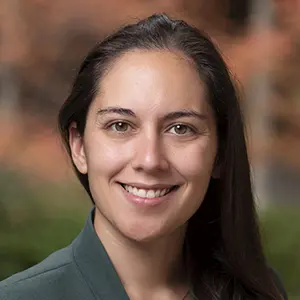February 19
@
12:00 PM
–
1:00 PM
Variations in fibrosis–the importance of biologic factors

Joscelyn C. Mejías, PhD
MOSAIC K99 Postdoc Fellow
2023 L’Oréal FWIS Fellow
Elisseeff Lab
Johns Hopkins University
Abstract:
Fibrosis affects a wide range of clinical disorders, including chronic wounds, the foreign body response (FBR) to implants, and diseases such as uterine fibroids. Analysis of the 2019 Global Burden of Disease study found that mortality from fibrotic diseases has steadily increased up to 17.8% since the 1990s. Aging is a significant contributor of fibrotic disease. With aging, immunologic changes are known to occur, including increased susceptibility to inflammatory age-related diseases, reduced responses to infections and vaccines, and poor wound healing. To develop more precise immunomodulatory systems to reduce fibrosis and promote tissue regeneration our goal is to understand how biologic factors (e.g. age, sex, ancestry) alter the immune response in chronic fibrosis. In my talk, I will discuss my work in immune changes with age and sex in the FBR. To recapitulate the FBR, we use a murine model of traumatic injury (volumetric muscle loss) treated with a pro-inflammatory material (polycaprolactone) to elucidate differences by sex in the immune-mediated fibrosis across lifespan. I will then discuss the understudied fibrosis of uterine fibroids, highlighting aspects of the immune microenvironment within this disease. Together, these studies highlight the opportunity for improved understanding and targeting of fibrosis to improve human health.
Print PDF